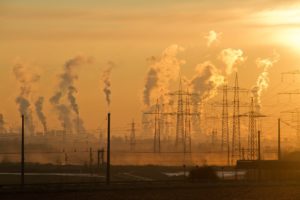 The Air Pollution Pandemic is already here and causes 7 million deaths each year.
The Air Pollution Pandemic is already here and causes 7 million deaths each year.
To put that into perspective air pollution causes more deaths each year than malaria, tuberculosis and HIV/AIDS combined. Since it emerged in 2019, 4.9m deaths have been recorded around the world from COVID-19, and governments worked quickly to develop vaccines to prevent more deaths. If similar effort was put into monitoring and addressing air pollution more lives would be saved and the millions more that suffer from severe respiratory diseases each year would benefit dramatically.
Here in the UK, we have one of the worst asthma death rates in Europe, with the rate of people dying from an asthma attack increasing by more than 20% in five years and costing the NHS over £1bn each year. A recent report by Asthma UK and the British Lung Foundation also found that more than 250,000 children in 2019 were born in areas that exceeded, World Health Organisation’s (WHO) 2005 recommendations.
Every day we’re seeing reports and studies outlining the impact that poor air quality has on our lives. Taking measures to reduce air pollution offers the most substantial economic and healthcare benefits, saving the NHS millions each year.
Measuring the air is where it all starts. If you don’t measure it, how can you even start to deal with the problem and make the appropriate interventions.
As we head towards COP26 to address the urgent challenges of air pollution, climate change and biodiversity loss, a recent paper published by the Clean Air Fund and Dalberg Advisors Climate outlines that policies are up to 50% more effective when they account for air pollution improvements.
It highlights taking an integrated approach that:
- Adopts new Global Air Quality Convention – where global targets informed by WHO ambient air pollution guidelines can be agreed and reported against.
- Coordinates national action – at Government level, new cross-departmental Air Quality Units should be created with responsibilities and powers across health, climate, energy, waste, agriculture and transport policy
- Improves policy coherence and indicator alignment – improvements in tracking and reporting on spending and results provide data and evidence for costs and benefits on an integrated approach to emission control actions.
Air pollution is the silent killer. Action now could save many lives, accelerate the mitigation of climate change and benefit future generations. Its every person’s right to clean air.
